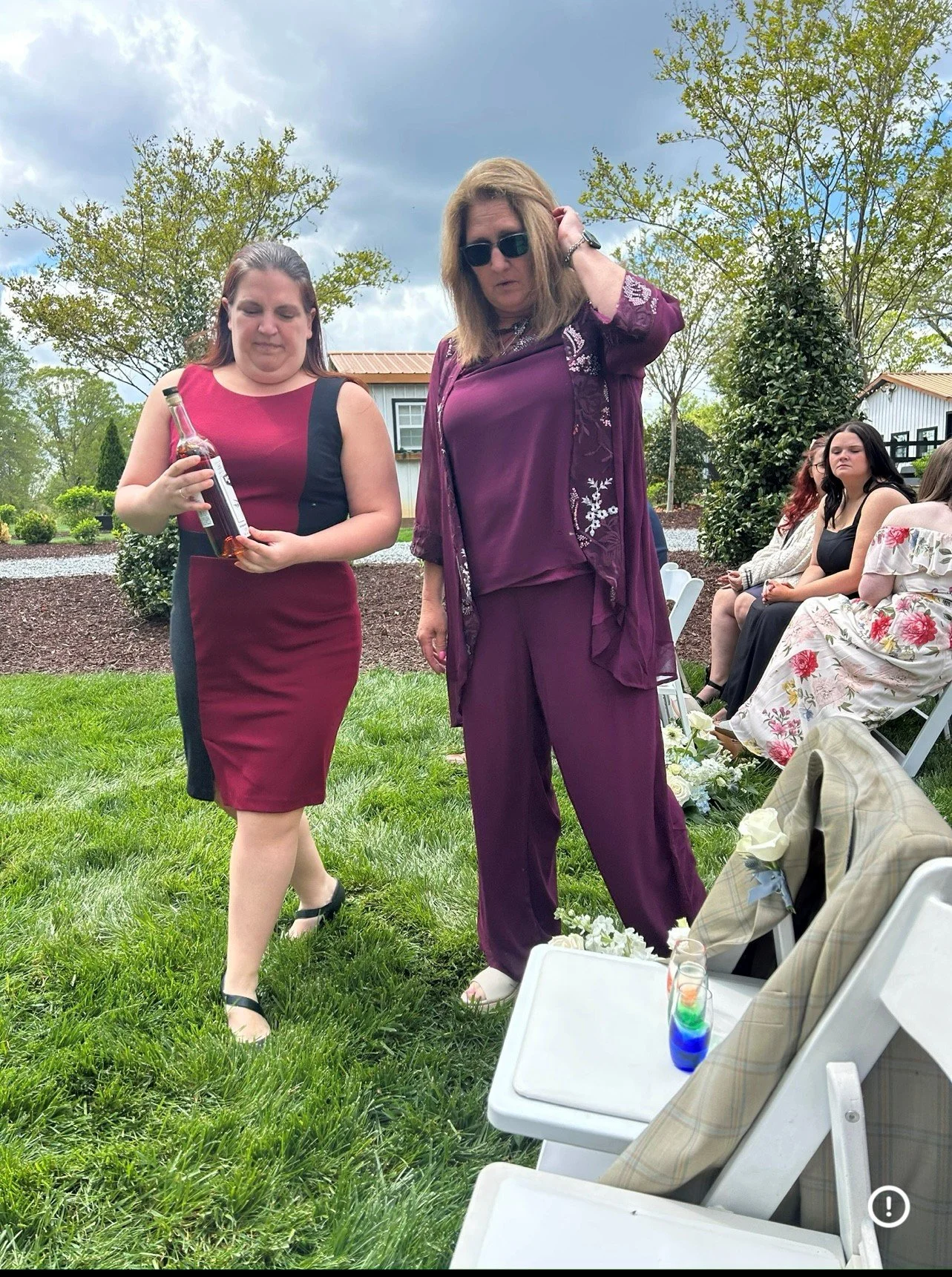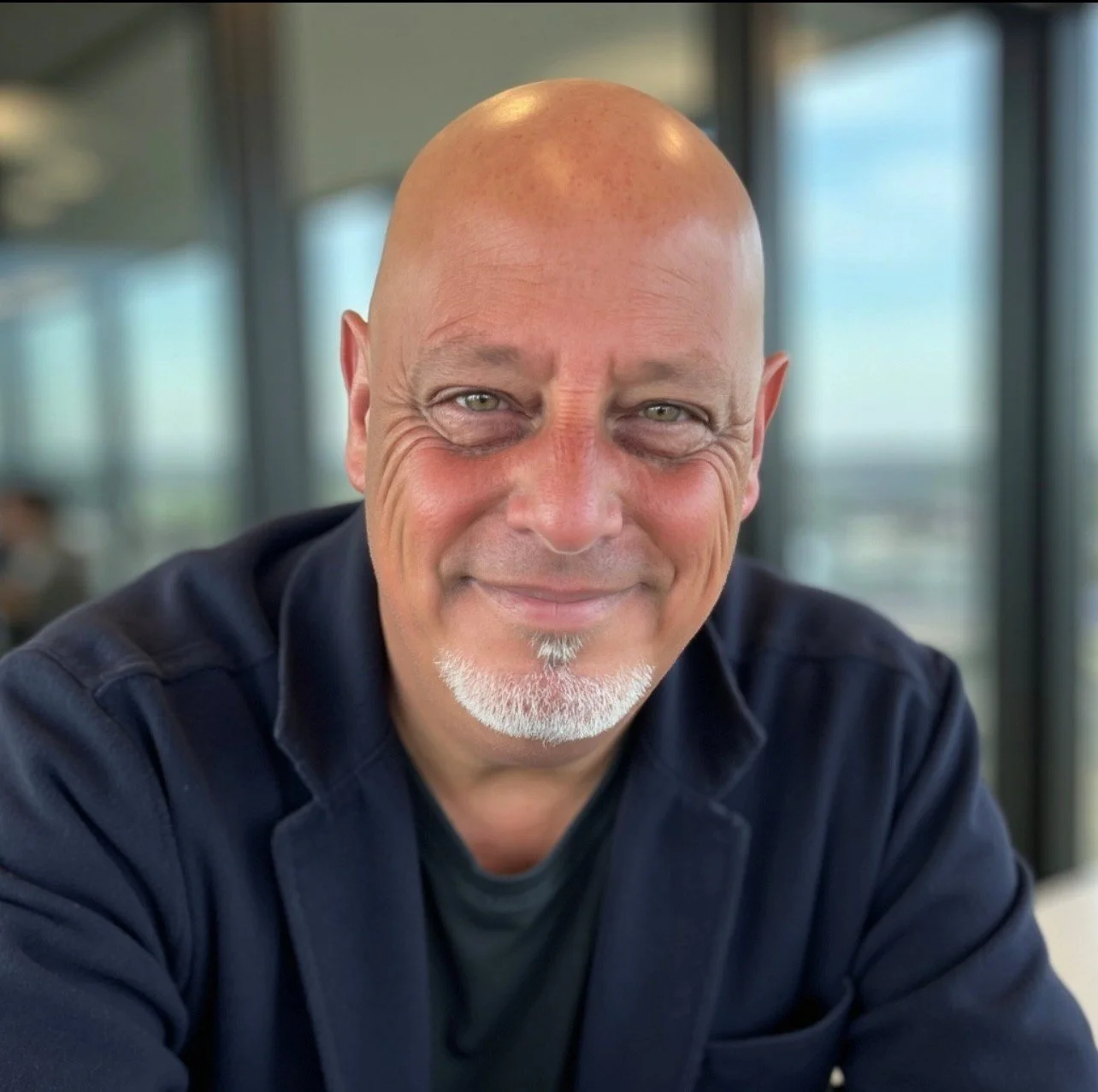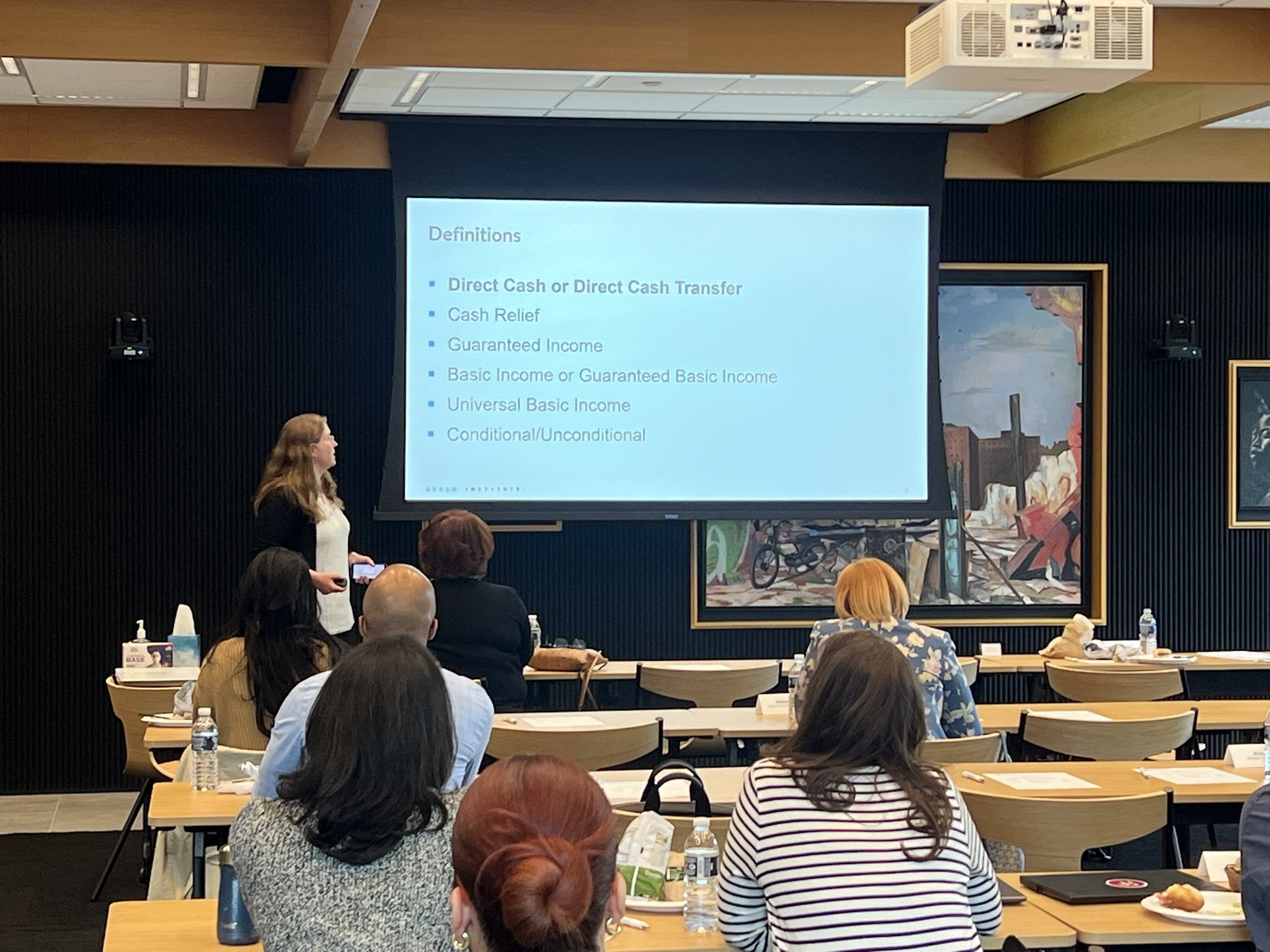Six months after the January 29 tragedy near DCA, Debi Epstein reflects on healing, community support, and the fight for safer skies.
Ian Epstein poses with an American Airlines flight outside of the Charlotte Douglas International Airport, where he was based.
For 53-year old Ian Epstein, being a flight attendant was more than just a job; it was a calling. A former salesman who was always quick with a joke or two (or twelve) and a smile, Ian made flying a memorable and enjoyable experience for anyone who had the pleasure of flying or working with him.
“He believed that laughter and smiles could and would change the world,” his ex-wife Debi remembers. “Being a flight attendant was the perfect way for him to do that – one flight at a time.”
Videos of his ‘mid-air stand-up routines’ abound on social media – including his signature flight check song (sung to the tune of Barney’s ‘I Love You’) – “We love you, you love us – we’re much, much faster than the bus; We hope you appreciate our hospitality – marry one of us and you’ll always fly for free!”
Debi recalls receiving one such video taken on the afternoon of January 29th, as Flight 5342 was preparing for takeoff from Wichita, Kansas to Washington, DC with a flight full of talented, young figure skaters.
“He was making them all laugh, and they were having a good time on the plane,” Debi describes. “Four hours later, he was gone.”
Debi stands in for Ian during the Daddy-Daughter Dance at her daughter's wedding.
The Road to Recovery and New Beginnings
The tragedy came at a busy time for Debi and her four children – the youngest of which was engaged to be married two months after her father’s tragic accident.
“We were joking about how we'd have to get the mic away from him at the wedding," Debi recalls with a bittersweet smile. "Then all of a sudden, we were planning his funeral.”
Through it all, the Epstein family was blessed with tremendous support from their community. Flight attendants and pilots from across the country attended Ian’s memorial service. Messages poured in from travelers across the country whose lives had been touched in small and simple ways by Ian’s legacy – the most moving among them, tender letters of love and support for the bride-to-be.
“It’s the little things like that, that made all the difference,” Debi shared. “It really brings the humanity back.”
A Community of Care: The DCA Together Relief Fund Response
For Debi, the DCA Together Relief Fund stands as one of those examples. Launched by the Capital Region Community Foundations, in partnership with the Wichita Foundation, the fund was designed to support the families, as well as first responders and other organizations supporting community healing.
The fund, which raised significant contributions from over 500 donors across 32 states and multiple countries, demonstrated how tragedy can unite communities far beyond the immediate area of impact.
For Debi, learning about the fund came as a surprise. "We didn't know that it was going on until we received the email," she recalls.
Having built a successful career, she initially hesitated to accept help. "When we got to DC, people told me to set up a GoFundMe. I didn't want to—there were a lot of children on the plane. I felt there were people that needed it more."
Debi and her children at her daughter's wedding.
Ian's co-workers leave special mementos for the father-of-the-bride.
However, as the weeks went by and the mental and emotional stress began to take its toll, Debi realized she needed all the help she could get.
“These first six months have been such a whirlwind,” Debi shares. “Between the funeral, the wedding, trying to get estates in order, trying to support my children emotionally.”
“It’s been a lot to process,” she adds. “We’re still coming to terms with it all.”
With support from the DCA Together Relief Fund, Debi and her children have been able to access mental health resources – as well as a community that has helped them look forward to a brighter future.
“For us, DCA Together wasn’t so much about the money; it was about caring,” Debi shares. “Knowing that there were people out who cared about me and my family and were willing to offer emotional and financial support made the world of difference.”
Healing Through Travel and Flight Advocacy
Through her experience, Debi has gained insight into challenges facing the aviation community that most passengers never see.
“Our family has had a hard time – but the flying community is also part of our family – and they are still struggling because of what happened.”
Penny (far left) and Debi (second from the right) share a tender moment with fellow flight attendants on their flight to Rome.
One such adopted family member, Ian’s coworker, Penny – whom he often referred to as his “work wife” – has become especially close with the Epstein family.
“People like Penny take to the skies every single day to make sure everyone on-board feels happy and safe– they deserve so much better!”
After the wedding, Debi and Penny traveled to Rome together— their first major trip since January; a trip that Ian and Penny had been planning together prior to the accident.
“It was an incredible healing experience to take that trip with her,” Debi reflected. “It reminded both of us how much we love travel and the flying community.”
The Epstein family also started a tradition of handing out gift cards to the flight attendants and crew on every flight they take – a simple gesture to thank them for what they do and honor Ian’s legacy to “Smile Often”.
Outside of the airport terminal, the Epstein family has become heavily involved in advocacy and policy change to push for safer skies. The family regularly engages with the media, writes letters to senators, and pushes for changes in air traffic control guidelines.
“We don't want anyone to live what we are living right now. We are a forgetful country—very easily we forget. This is one of the things we can't forget.
A Message of Gratitude
Debi says that the impact of DCA Together Relief Fund means more than most people realize.
“The fund showed us that we're not going through this alone,” Debi shared. “When you're dealing with grief, especially something this public and tragic, you can feel very isolated. But knowing that people you've never met took the time to contribute—that they were thinking about our families—that means everything.”
“Thank you for bringing the humanity back into our lives, for not forgetting about our loved ones and acknowledging that what happened to them shouldn't have happened. It's greatly appreciated.”
As Ian used to tell passengers with his characteristic optimism: “I promise you things are going to get better.” Through advocacy and the community's continued support, Debi and her family are working to make that promise a reality.
The DCA Together Relief Fund, managed by the Greater Washington Community Foundation, was a community-supported crisis response effort to provide aid for impacted families, first responders, and organizations supporting community recovery and healing. The intent of this effort was to ensure that those affected receive the care, resources, and support they need during a difficult time.
To learn more about the fund, visit www.thecommunityfoundation.org/dca-together-relief-fund





























































